News & Agenda
News
03 December 2020
Technical Medicine master students tackle COVID-19 cases
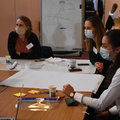
During the COVID Case Day, thirty master students from the Technical Medicine programme studied COVID-19-related cases submitted by various hospitals and health-care institutions.
30 November 2020
3mE researchers partner in two NWA-ORC consortia

Researchers from TU Delft will work together in nine consortia with the entire knowledge chain and societal organisations, and conduct interdisciplinary research that will bring scientific and societal breakthroughs within reach. Faculty 3mE takes part in two consortia.
24 September 2020
Ajay Seth receives Chan Zuckerberg grant for Open Source Software

Ajay Seth, assistant professor at the Department of BioMechanical Engineering, has received a grant of US$190,000 from the Chan Zuckerberg Initiative DAF for his research on the development of Essential Open Source Software for Science. Ajay Seth is receiving the grant specifically for his ‘OpenSIM’ project, an open source biomechanics simulator to study movement to improve the usability, computational performance, maintenance and outreach of the OpenSim open source software and to support the education and training of its users around the world.
29 June 2020
Gerjo van Osch in various media
25 June 2020
Clinical technologists officially registered healthcare professionals
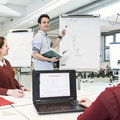
Good news for the technical physicians who will be first to graduate from the joint programme at TU Delft, Erasmus MC and LUMC. They can use the legally protected title of clinical technologist and register in the BIG register. This makes them officially registered healthcare professionals allowed to carry out reserved procedures independently. Clinical technologists will be given first-line status and therefore have the authorisation to register and declare healthcare activities. This is a milestone in the positioning of this still recent professional field, according to programme directors Jaap Harlaar and Pleun Hermsen.
01 June 2020
Amir Zadpoor in various media
A project team of scientists active in the Medical Delta region is testing the first prototypes of a ventilator consisting entirely of standard parts. These parts are locally stocked almost everywhere in the world and can be made by hundreds of manufacturers. As a result, the ventilator can in many cases be assembled locally. The design hopes to respond to the demand for respiratory equipment and the logistical problems that exist due to a shortage of specific parts.
15 May 2020
Bart van Trigt in various media
Bart van Trigt is researching how to reduce injuries among athletes, especially baseball and tennis players.
14 April 2020
Mechanical ventilator from the 1960s inspires Delft engineers
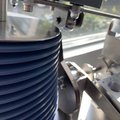
Today, a team of Delft researchers and students from the BioMechanical Engineering department is launching a new type of ventilator that is purely mechanical and which you could easily construct and repair yourself. The team borrowed a 1960s ventilator from Rijksmuseum Boerhaave and used it as inspiration. As it works mechanically, no electronics are required. This is particularly advantageous since its production is not dependent on the – now uncertain – supply of parts from China.
14 April 2020
Scientists design ventilator made of standard parts
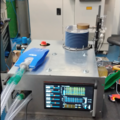
Amir Zadpoor and a team of scientists from the BioMechanical Engineering department are testing the first prototypes of a ventilator that consists entirely of standard parts. These parts are available locally almost all over the world and can be produced by hundreds of manufacturers. This means that, in many cases, the ventilator can be assembled locally. It is hoped that the design will be able to respond to the demand for ventilators and offer a solution to the logistical problems resulting from a shortage of specific components.
14 April 2020
TU Delft is working on a simple tool to measure oxygen saturation in COVID patients
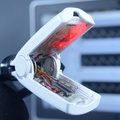
Arjo Loeve and his research colleagues at TU Delft’s Department of BioMechanical Engineering are working with the Jeroen Bosch Hospital and the Rotterdam University of Applied Sciences on a new pulse oximeter that is easy and inexpensive to produce. The pulse oximeter is a crucial measurement tool that monitors the heartbeat and amount of oxygen in the blood while COVID-19 patients are being treated. The aim of the research is to counteract the impending shortage of this tool.